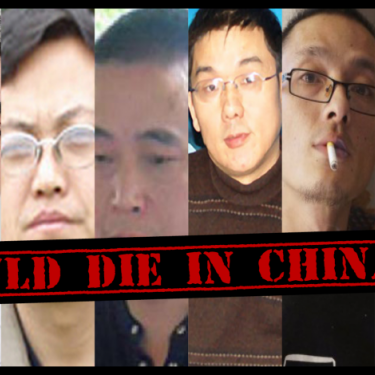Two years after Liu Xiaobo's death, China remains the largest prison of journalists in the world

Two years after the death of Nobel Peace Prize and RSF Award laureate Liu Xiaobo while in detention, Reporters Without Borders (RSF) reiterates that China remains the largest prison in the world for defenders of free information.
As the world commemorates the second anniversary of the death of Nobel Peace Prize and RSF Award laureate Liu Xiaobo, whose cancer was left untreated in detention, Reporters Without Borders (RSF) reiterates that China remains the biggest prison for journalists, with at least 112 of them behind bars.
“Despite the international turmoil caused by this assassination, Beijing persists in its policy of systematic ill-treatment of detained journalists,” denounces Cédric Alviani, head of the RSF East Asia bureau, who calls on the international community to “intensify the pressure on the regime to release all defenders of freedom of the press.”
Liu Xiaobo died on July 13, 2017 of an untreated liver cancer while in detention. In a manifesto published online in 2008, Liu Xiaobo pleaded for peaceful political reforms, including the enforcement of press freedom, for which he was sentenced to 11 years in prison. Back in 2004, RSF awarded him its Press Freedom Award six years before he received the Nobel Peace Prize.
In 2017, Chinese writer and blogger Yang Tongyan also died of an untreated cancer while in detention. Citizen journalist Qin Yongmin, reporter Huang Qi, and Swedish publisher Gui Minhai are among those who remain in detention under life-threatening conditions.
China has dropped to 177th place out of 180 in the 2019 RSF World Press Freedom Index.



